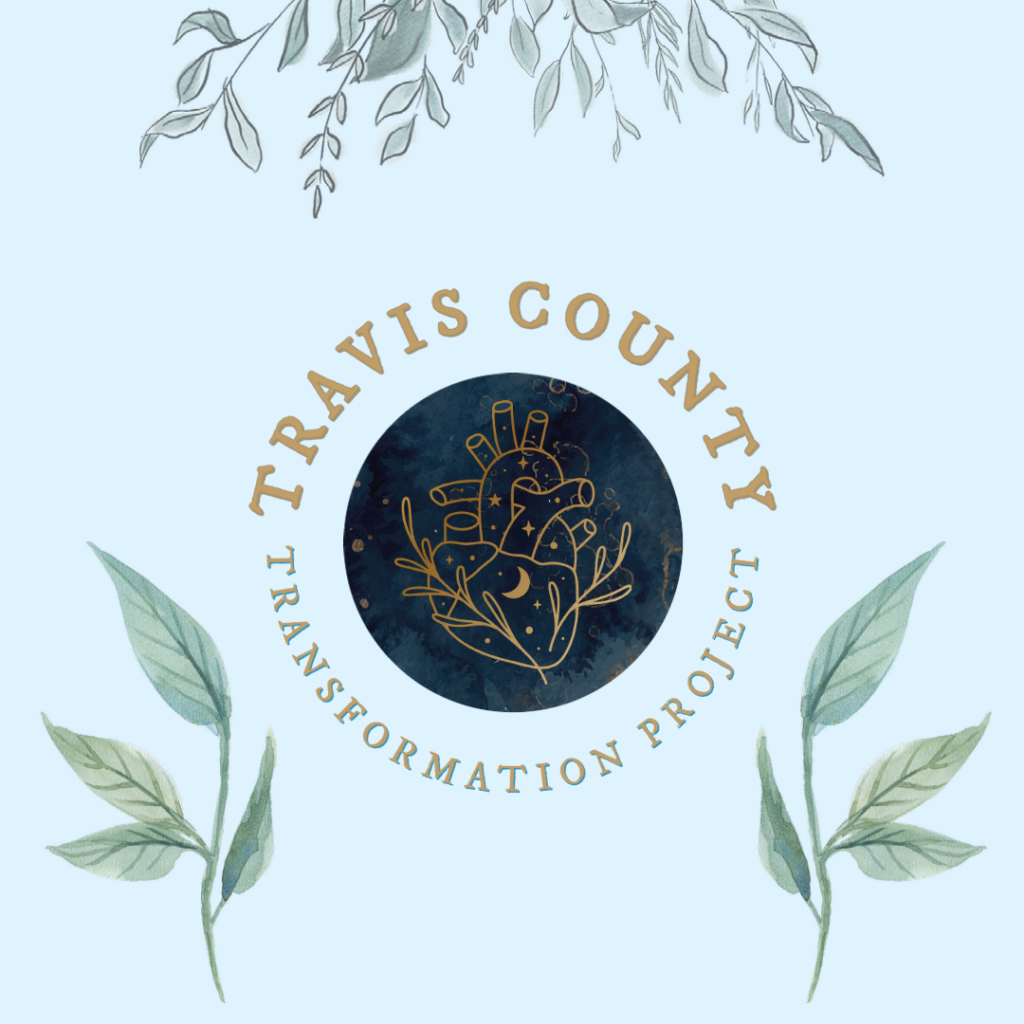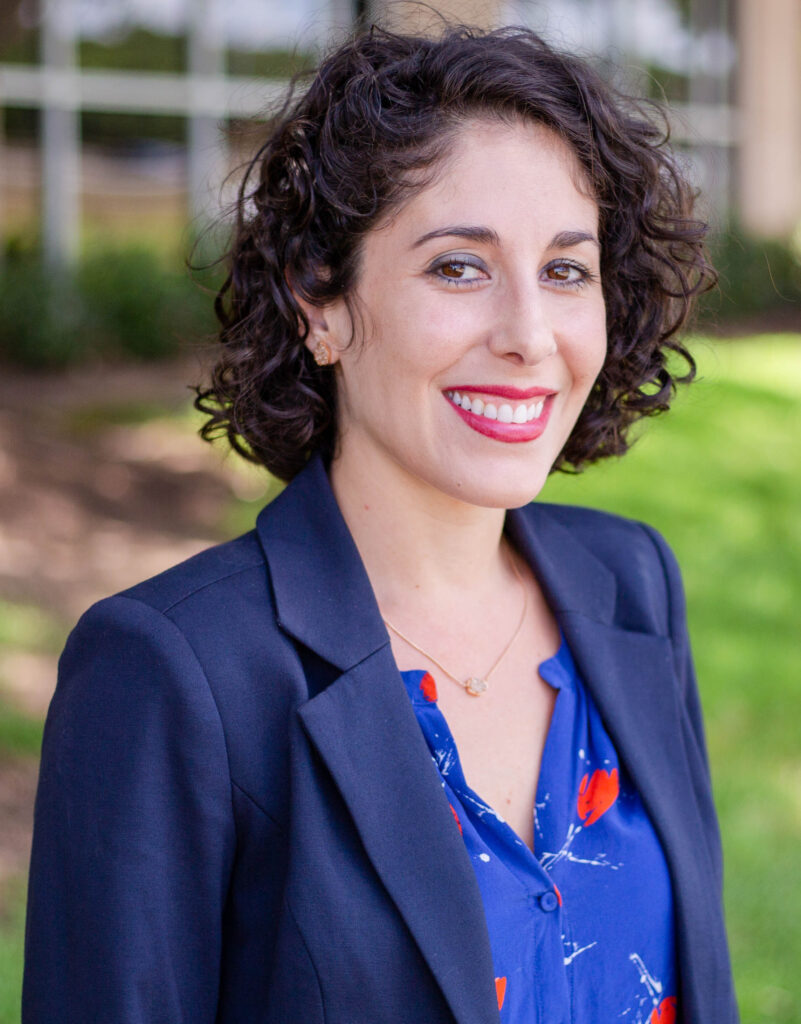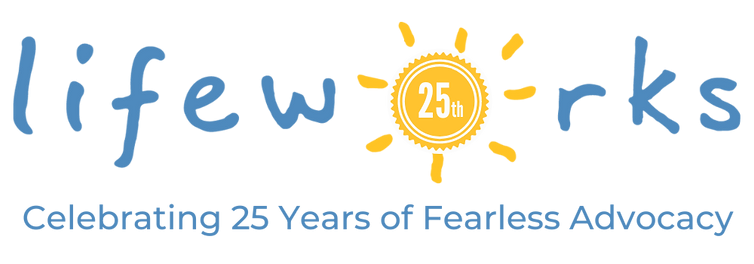
A pre-arrest, community-based pilot program for 15 to 16-year-olds involved with family violence in the home. An alternative to juvenile detention, the Travis County Transformation Project uses restorative justice practices to repair harm, restore connection to community, and prevent future violence.
HOW THE PROGRAM WORKS
- Youth aged 15 to 16 are eligible for the program if they have initiated family violence within the home and 911 has been called to the scene. This program will be offered to a family by a law enforcement officer if the youth is eligible.
- Caregivers of the youth choose what happens next: youth can go through the traditional process of going to juvenile detention and having a case in front of a judge or their caregiver can opt them into TCTP – a restorative justice pilot program. Please view the video above for more information on deciding to enroll in the program.
- Once enrolled, youth have the option of spending up to 14 days at LifeWorks Youth Shelter in Central Austin for a “cool down” period. They will have a bed, basic supplies, meals, rides to school, daily counseling, and a case manager.
- A Youth Advocate from the Excellence and Advancement Foundation will contact the youth and caregiver within 48 hours of their enrollment into the program. The Youth Advocate will provide information about what comes next, while also ensuring the family has the support they need at home and at school.
- Once the youth is ready, the Youth Advocate will introduce them to the Restorative Justice facilitators from the Amala Foundation, and they will begin a 10-week program of in-person meetings designed to address the root causes of the violence that occurred, process trauma, enhance coping skills, and repair the harm that was caused.
- Youth and at least one designated caregiver must participate in the 10-week process. Youth and the caregiver(s) will meet the facilitators separately at first and then come together in a peacemaking circle with other family and community members to work towards healing and resolution.
- The time and location of the meetings will be determined in collaboration with the Restorative Justice Facilitators. Accommodations may be available for travel, childcare, and other potential barriers to participation.
- Once the youth and caregiver have completed the program, there will be no other engagement with law enforcement. The youth will not have a record in the criminal legal system or any conditions to further comply with. If a youth or caregiver decides not to complete the program, or does not participate in the process, their case will be returned to law enforcement.
- After completing the 10-week restorative process, youth and families can continue to receive services from their Youth Advocate in order to stay connected to resources, mental health care, and community supports to continue maintaining relationships at home and at school.
THE FACES OF THE TCTP

Danielle Williams, Programs Director, EAF: With a bachelor’s degree in Developmental Psychology, and master’s Degree in Counseling, Danielle Williams empowers others to find the power of their voice and the tools they need to build a brighter future. As Programs Director for the Excellence and Advancement Foundation, a non-profit focused on dismantling the school to prison pipeline, Danielle combines her concern for youth, life experiences, and education to advocate for youth and families and help them obtain the resources and support they need to regain strength and autonomy. Through the lens of liberation for all, Danielle deconstructs systems and policies that uphold the relationship between schooling, race, and incarceration while rebuilding and affirming each youth and family she encounters throughout the journey. Danielle’s work to dismantle the school to prison pipeline has involved collaborations with organizations including AAUL, Texas Department of Family and Protective Services, Huston-Tillotson, and the Girls Empowerment Network.
Maria Arabbo, Executive Director, Amala Foundation: As the Executive Director of the Amala Foundation Maria helps serve the mission of inspiring people of all ages and backgrounds to connect with themselves and others, grow as individuals and serve as conscious leaders in their communities. With eight years of experience in the education field and a master’s degree in Intercultural Relations, Maria holds both professional and personal experience with mindfulness and equity work and brings a unique perspective to her team as a first-generation immigrant from Argentina. Deeply impacted by her own immigrant narrative, she has focused her professional journey on impacting the lives of others from diverse backgrounds and lived experiences and is deeply committed to making transformative change in the criminal justice system for Travis County residents.


Dr. Courtney Robinson, Executive Director, EAF: An outspoken advocate and change-maker who experienced parental incarceration during childhood, Courtney Robinson is the founder of the Excellence and Advancement Foundation. After years of experience working with youth and the criminal legal system, and obtaining a PhD in Education, Dr. Robinson founded the Excellence and Advancement Foundation in 2015 to address the school-to-prison pipeline in Austin, Texas. Her work is inspired both by her family history and the inspiration she has drawn from the resilience of the young people she’s encountered working to reconstruct their lives after confinement.
Kristina Garrison-Clark, Youth Advocate, Amala Foundation: A steadfast advocate, Kristina is known for her unwavering commitment to transformative change and community betterment. With extensive experience in diverse social service contexts, her passion centers on crafting opportunities that revitalize lives, reinvigorate perspectives, and catalyze lasting change. Her proven track record in assisting those in need underscores her determination to contribute to a safer and more compassionate world. Kristina remains a driving force in the realm of social justice, tirelessly working to ensure that young individuals and families receive the vital support and opportunities required for their growth and prosperity.
.jpg)

Renee Williams, Youth Advocate, EAF: from 46 years in education, Renee Williams decided to return to her passion for working with youth by becoming a Youth Advocate with the Excellence and Advancement Foundation. Renee worked for three districts in the Austin area, in roles ranging from teacher to administrator to Executive Director of Student Support Services. From that position, Renee brings with her a wealth of knowledge on student discipline, including experience serving in hearings, liaising between the district and police agencies, and training campus administrators on legal student discipline issues. A proud native Austinite, Renee attended Houston-Tillotson as an undergrad and obtained a master’s from UT Austin and an administrative certificate from Texas State. Renee spends her free time with her family, including her four grandchildren who help keep her energized.
Markus Fuller, Youth Advocate, EAF:
Assisting in the bright futures of children since 1996, Markus believes that his mission in life is to help and serve children and families in need. He served as an educator in Indiana and North Carolina before moving to Austin in 2015. With a master’s in educational leadership and a license in school administration and special education, Markus has served students in various roles within education. He has decades of educational, athletic coaching, life skills preparation, and advocacy experience. Through partnering with the Excellence and Advancement Foundation, Markus is excited to continue helping youth achieve success both inside and outside of the classroom.


Rashid Amrani, Restorative Justice Facilitator, Amala Foundation Of Moroccan-American identity, Rashid Amrani was born and raised in Texas and graduated with an education degree from The University of Texas. For over 20 years, Rashid worked in Austin area public schools teaching multiple subjects and grade levels including art, music, science, and gardening. His most recent teaching experiences focused on trauma informed services for youth in foster care, emergency shelters, and residential treatment facilities. Rashid also worked with SAFE Austin, developing a needs assessment for children with disabilities experiencing abuse in rural areas. Most recently, Rashid Amrani coordinates a restorative based diversion program for youth and families in Travis County. He believes restorative practices offer authentic and meaningful experiences for strengthening relationships and connections.
TCTP is a Collaboration Between:



